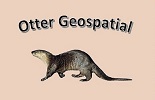We’re using ArcGIS Online to share sampling results among team members. Here’s the status of our web map as of May 2019:
- The web map is owned by Michael Stiefvater (stiefvam)
- The map is viewable by Molly Meyers (meyersm_UWGB), Andrew Schmitz (schmar20_UWGB), Kevin Fermanich (fermanik_UWGB) and Mike Stiefvater (stiemg10_UWGB). Individuals are authorized to log in to the map by virtue of membership in an ArcGIS Online group titled EOF Sampling Team.
- Considerable development will be needed before navigating to a specific sampling result is intuitive and fast. Site, sampling year, sample location, sample depth and parameter of interest all need to be factored in to the data retrieval algorithm. In the meantime, we’ve pulled together some tips to help users find the data chunk they are looking for.
Navigation – When the web map is first opened, it doesn’t know which set(s) of sampling results to retrieve.
- In its default state, the web map does not display any sample results. To retrieve results for a specific soil property; make sure the column at the left side of the map is set to display content (a list of the map’s viewable layers), then check the box next to the layer corresponding to the soil property of interest.
- The web map’s default extent is the Upper Midwestern US. To select one of the sampling sites for a closer look, click on it’s orange blob. A pop-up with a “zoom to” menu item will be displayed.
- By default, selecting a soil property returns sample results for Year = 1 (2016) and Depth = 5 cm. Either or both of these can be changed using the filter tool (one of several settings accessed by pausing the cursor over an item in the table of contents)
Symbology – The pilot version of the map uses colored swatches to signify which of five classes the sample result falls into.
TEST RESULT |
COLOR NAME |
TABLE VALUE |
HEX COLOR |
|---|---|---|---|
Ideal |
Dark Green |
dgreen |
70A800 |
Slightly bad |
Light Green |
lgreen |
A3FF73 |
Significantly bad |
Yellow |
yellow |
FFFF00 |
Very bad |
Orange |
orange |
FFAA00 |
Extremely bad |
Red |
red |
FF0000 |
